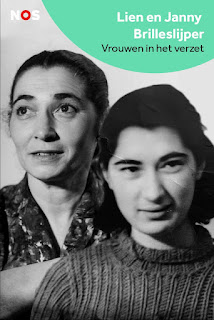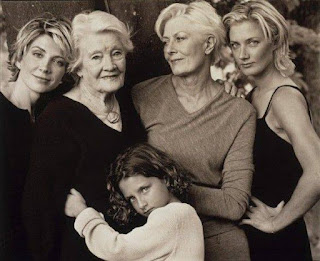The previous post was about two sisters who spent a year in hiding during WW2 and eventually later came to be arrested, deported and witnessed death of Anne Frank and her sister in Bergen-Belsen concentration camp. Both Janny Brandes-Brilleslijper and her own sister Lien were originally in Westerbork transit camp (used as limbo between arrests and real concentration camp), than transferred to Auschwitz and finally to Bergen-Belsen where they miraculously survived, instinctively holding on to each other. One of these sisters, Janny, is included in a 1988 documentary that gives testimonies of seven different ladies who were also prisoners in these camps and who witnessed Frank family being there.
It is a very interesting documentary since each of included witnesses tells a story that follows what happened after the end of the famous diary in 1944, when Frank family was betrayed, discovered and arrested. Some of them (like Hannah Pick-Goslar) were actually Anne's childhood friends and never knew she was in hiding - they just assumed the family was long ago escaped to Switzerland. Janny Brandes-Brilleslijper comes in a documentary around 10:38 and she talks how she met Frank family int he same train that took them to Westerbork and how they later met again in Bergen-Belsen where, exhausted and sick, Frank sisters already gave up on living anymore, thinking that their parents were already dead (Otto Frank was in fact, alive and he was already liberated from Auschwitz but nobody knew it at the time). Janny and her sister might be the last people who actually saw Frank sisters alive and they were the ones who buried them. It is a very interesting documentary that includes many other stories by Anne's friends and contemporaries.






